A Scholar of Benevolence and Wisdom - An Interview with Director-general of National Park Association, Professor Chang-yi Chang
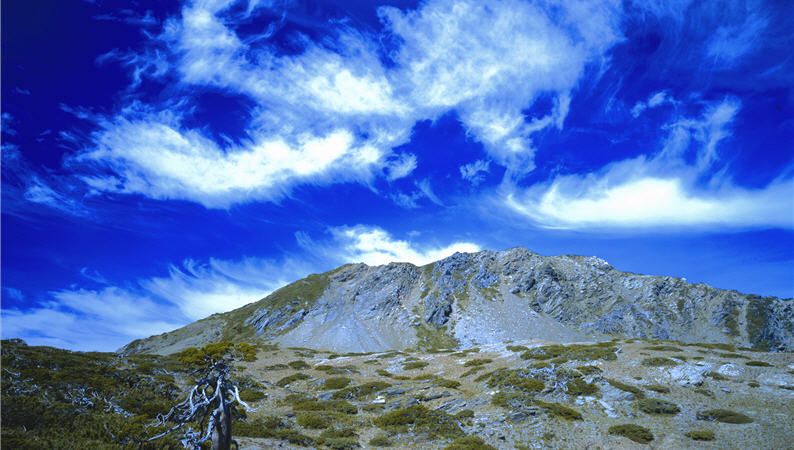
“The benevolent love mountains; the wise love waters.” best illustrates Professor Chang -Yi, Chang, the president of the National Park Association. Association (NPA), has been an ardentadvocate of the education and conservation of Taiwan's national land. In addition to leading his students to conduct field surveys across mountains and waters, Chang is still learning from other countries and taking the precious lessons back home to better the conservation research and practices related to the NPA. He truly deserves our utmost respect. In the interview, he shared his views on the future development of national parks.
Chang was once a boy scout, and his closeness to nature has led him to love it. After he went to the Department of Geography at NTU, he learned about the human-nature relationship and the use and implementation of national land. He then embarked on conservation works and hopes to make contributions in this area.
Holding Hands with the Environment
As a vital member of the National Park Association, Professor Chang has always remained humble in a conversation in the same way as he often said in class“ Man is only a part of nature”.
It is precisely this point that made Professor Chang carry himself in a humble manner. But under this mild demeanor he has actively played “a part” in promoting environmental conservation and put himself on the line against adversity.
“In 1982, the first national park was established in Taiwan, with lesser costs and higher international exposure, it was a commendable achievement”, said Professor
Chang. During the 60's and 70's, our government paid little attention to environmental protection, until the end of the 70's when the effects of pollution which resulted in environment movement were felt overseas (such as the minamata disease in Japan). Research and development in environmental conservation then began.
In 1976, after he returned home from his study overseas, Professor Chang teamed up with Mr. Longcheng Chang and began planning with these for the establishment of Kenting National Park. In 1982, Kenting National Park and the Environmental Protection Bureau in Department of Health were formed of concurrently. Within four years, four national parks were established.
Professor Chang believes that the 1980s was the enlightenment period for environmental conservation movement in Taiwan. Especially after the martial law period, environmental awareness suddenly became widespread though much remained to be done.
Expectations Unchanged In the Face of Evident Disappointment
“I am just happy to be a part”
Professor Chang humbly expressed when participating in major environmental conservation projects. In his mind, though there have been many regrets, plenty more of ideas still hover around.
In 1982, Mr. Long-cheng Chang, the first Director of the Construction & Planning Agency, was actively involved in promoting environmental protection plans along the coast of Taiwan. Though by 1986 there were 12 coastal conservation areas, they were all managed by local governments, except Kenting and the northeast coast, which were managed by central agencies.
“The first edition of the Coastal Conservation Act was almost announced back in 1990, unfortunately not much happened as a result”, Professor Chang said. “Otherwise our ecological environment would look very different today” .
For Professor Chang, behind every regret there is persistence and he will not throw in the towel if there is still a slightest possibility for success.

Interview & Text / Wan-ching Lai ‧ Hsin-hua Lian
Special thanks to / Professor Yueh-wen Huang of the Department of Tourism at Shin Hsin University, who helped prepare the outline of the interview and modify the text ‧ Miss Yu-ting Chen of Yong-he Community College
Translator / James Chang
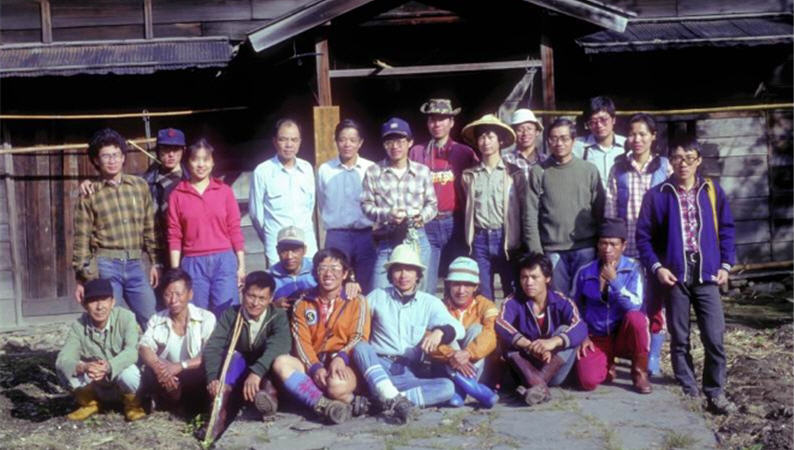
Professor Chang believes that land-use planning comes before environmental conservation, and our biggest problem lies in the lack of coordination and communication among environmental protection departments, such as the Department of Health, Ministry of the Interior, Council of Agriculture and Council for Cultural Affairs. So, in 1982 Professor Chang wrote an article on resources integration in Science Monthly, but his effort was short lived when a new government was elected in 2000.
“Though the road ahead is long, I remain hopeful as this is what our government should do.”
Professor Chang's eyes gleamed with firmness. The hope that once lived in the Science Monthly was never lost.
A Kind and Compassionate Teacher
Chang believes that mankind should be more humble and friendlier to the environment. This attitude also deeply influences the way he interacts with his students and the world.
He prefers encouragement to reprimand and thinks that every student can be an ambassador of environmental protection. They may have different roles, but each of them is unique and can contribute to environmental protection. As his student Yueh-wen Huang put it, “Professor Chang treats his students equally and inspires them a lot. I feel fortunate to have been taught by him for six years.”
Chang likes learning from nature and through observations. He recently went to the Uluru National Park in Australia and felt that the management and planning of the park and the preservation of the aboriginal culture are all aspects we in Taiwan can look up to.
“As I always say, the three core values of national parks should include the conservation of biodiversity, landscape conservation and cultural preservation.
The Uluru National Park in Australia achieved exactly these. Australian indeed pioneers in the development of aboriginal culture and this is something we need to learn.”When taking students on a trip, Professor Chang often allows students to spend four days to a week out in the open to practically apply the theories that they have learnt in textbooks, and develop social learning and application through discussion and interactive learning. Professor Chang has also taken such “inspirational teaching” found only in top academic institutions into community universities.
After class, Professor Chang is a director at Yonghe Community University, where he continues humbly teach about the environment.
One of Professor Chang's most memorable experiences was once they tried to prevent fueling trucks from damaging the wetlands, so with the help of an excavator they raised the fuel barrel and“ air dripped” the fuel along a pipe into the truck's fuel tank.
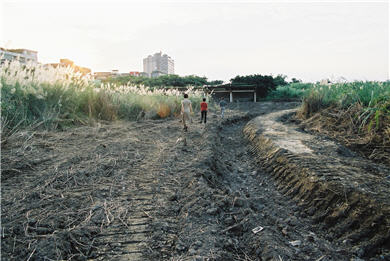
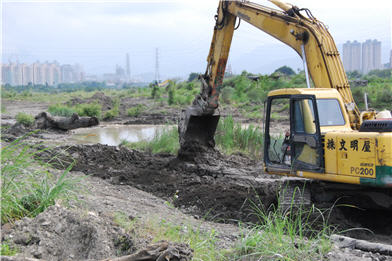
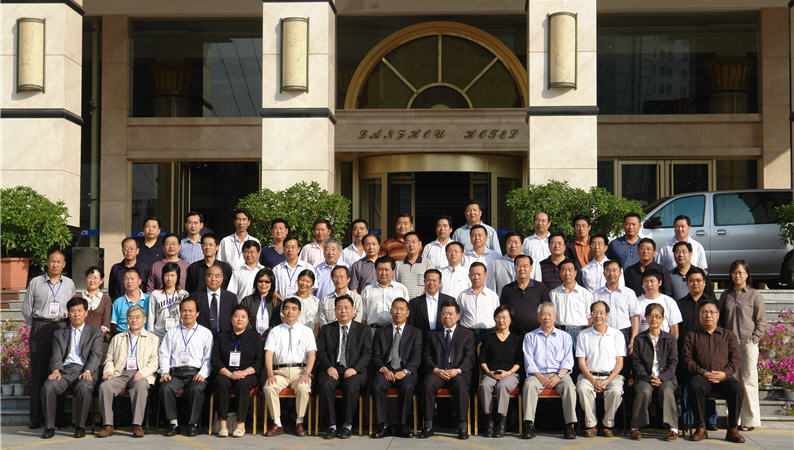
“This was the most moving moment for me outside my academic research experience”, Professor Chang said emotionally.
Sustainable Conservation
As the Quarterly went to press, typhoon Morakot ruthlessly devastated Southern Taiwan. Mankind is often caught off guard by the sudden attack by Nature, but the damage cannot be entirely attributed to the typhoon.
Had mankind not over-pumped the groundwater and refrained from over-logging, the casualty could have been minimized. As Professor Chang put it, environmental protection is not merely the responsibility of environmental experts and scholars.
The di lemma of economic development versus conservation has long been an agenda for Taiwan's geographical environment. In his capacity, Professor Chang will obviously give more consideration to environmental protection, but he does not criticize opposition's views.
He believes that the more favorable living conditions of the developed western countries allow them more options in choosing the best approach, but when people are hungry, options are limited, resulting in more resistance.
"Therefore, sustainable development of the 21st century is the eradication of poverty. Developed nations must help the poor ones, not just their own interests. We all know that there is only one Earth and peoples must help each other. If the Earth is gone, so will those developed nations, isn't it so?” Professor Chang explained.
As a professor of“ biodiversity”,“ landscape conservation” and “Cultural presservation” Professor Chang has transformed his love for the country into own life instinct. There were some regrets and barriers that he encountered, but what we are seeing is the lifetime story of a kind and humble scholar forging ahead on this path of environmental conservation.
We believe that the National Park Association can carry out its function and continue to play a very important role in conserving environmental resources so as tocontribute to the sustainable development of national parks in Taiwan under his leadership.
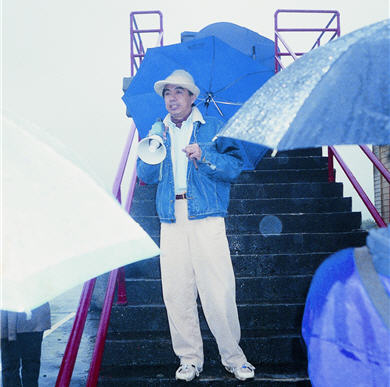
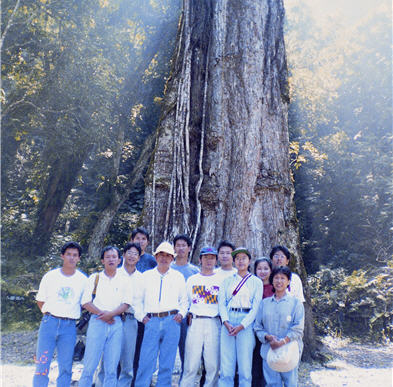

Profile of Prof. Chang-yi Chang
Bachelor's degree from Department of Geography, National Taiwan University; master's degree in geography from Texas A & M University, USA; PhD in Geogrephy from the Univ. of Texas- Austin; Chair of the Department of Geography, National Taiwan University; Asia-Pacific representative for Marginal Region Academic Committee of International Geographical Union; president of International Geographical Union National Committee, China-Taipei; Director-General of Geographical Society of China located in Taipei. President, National Park Association, Taiwan, R.O.C. and Chair, IGU Commission on Islands, President, Yonghe Community University.
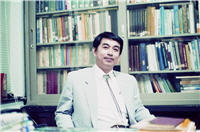


![Text size [Small]](/media/system/images/font_small.jpg)
![Text size [Medium]](/media/system/images/font_normal.jpg)
![Text size [Large]](/media/system/images/font_big.jpg)





